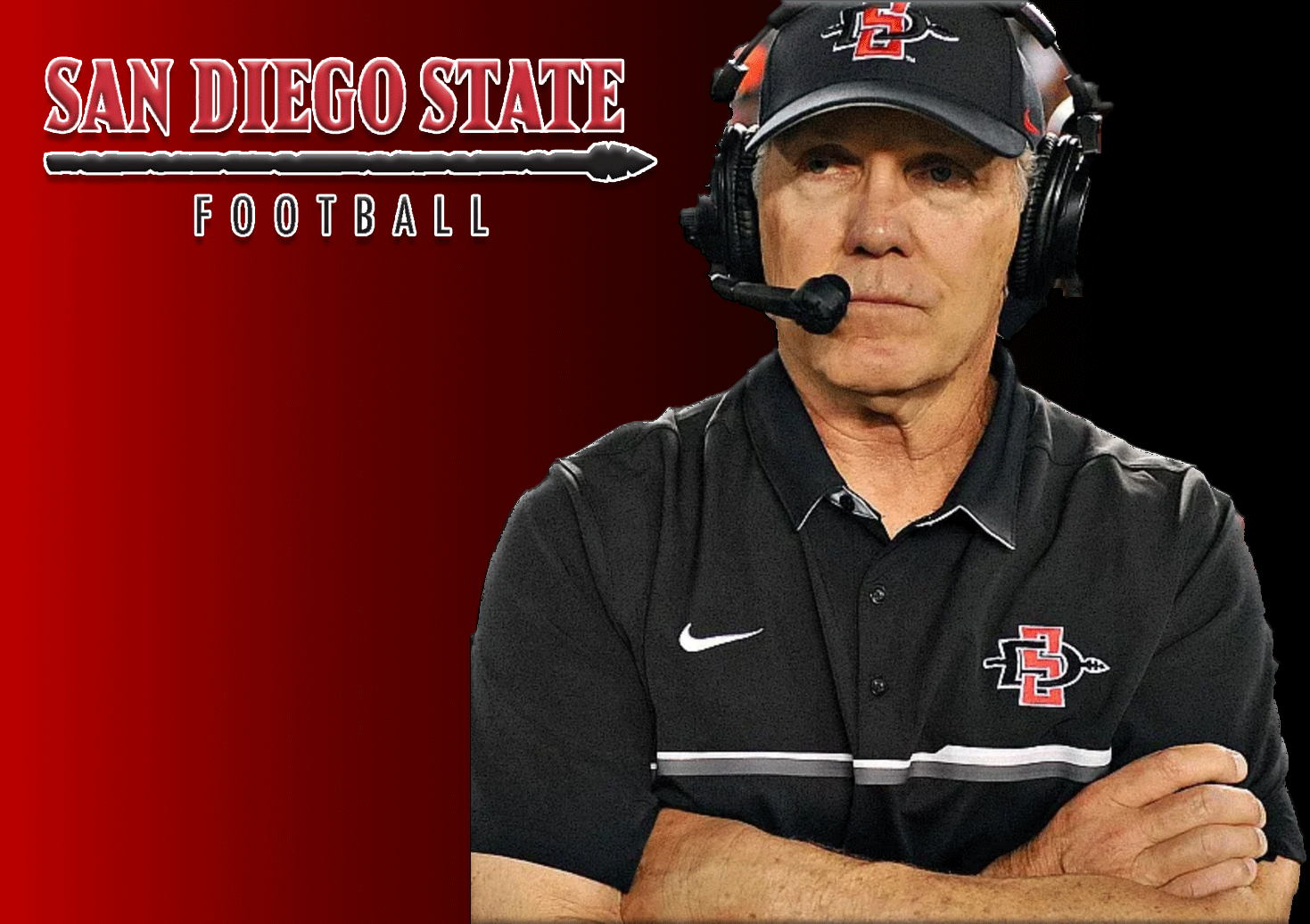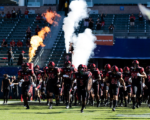Reality. It’s high time we get real about Rocky Long’s legacy and the absurd notion that he might return. Rocky Long, the architect of some of SDSU’s greatest football moments, made it crystal clear when he left – he appreciated his time here, but he’s not coming back. Period. He did his part, and he did it well, but it’s history now.
The man took SDSU football to new heights, brought a fearless attitude to his teams, and stood toe-to-toe with some of the west coast’s best programs. And yet, some fans, instead of rallying behind him, chose to criticize and demand changes to his staff. This constant criticism, instead of a more demanding yet supportive fanbase, played a role in his decision to leave. San Diego State lost a gem because his value was understated frequently.
Now, with Brady Hoke’s retirement, I hear murmurs and wishful thinking about Long returning as defensive coordinator. Rocky Long is not walking through that door again as a coach. He left on his terms, and his decision to retire at San Diego State should be respected. His departure was a statement in itself – he gave his all, and now it’s time for fans, local media, and the program to move forward.
Reflect on Rocky’s own words from the 2013 Idaho Potato Bowl press conference. He talked about the impact of media perception and fan expectations, about how quickly people get spoiled. Remember when he said, ‘When I got here five years ago, we had a season that was 4-8, and everybody acted like that was the best thing that ever happened to this program’? And then, just five years later, after making it to four straight bowl games, that achievement was taken for granted. It was a Bowl game invite in Idaho. How come it wasn’t a Bowl invite to Pasadena?
It’s a stark reminder of how we, as spectators, can be spoiled, always wanting more without appreciating what we have. Rocky continued, highlighting how SDSU, being one of only 29 teams to go to four straight bowl games at that time, was still not getting the recognition it deserved. Forget national recognition. He couldn’t get local recognition. This is the reality check we need. Some have been quick to demand Rose Bowls and championship titles without fully valuing the hard work and success that’s already been achieved.
And Rocky’s insight into how this perception affects players and recruits is vital. He knew the power of positive reinforcement, how celebrating achievements like winning overtime games and making consistent bowl appearances could uplift the whole program. But when achievements are downplayed or expectations become unrealistic, it’s not just the team that suffers; it’s the entire program’s morale, which impacts the seasons to follow.
Can’t hope for a past to return that clearly won’t. What is needed now is to learn from Rocky Long’s legacy – the fearlessness, the resilience, and the belief in the team’s potential. The program needs a fanbase that supports and uplifts, not one that implodes. What’s needed is to build on what he left, not to ask or hope for his return.
Rocky Long’s tenure from 2009 to 2019 at SDSU was more than just a coaching stint; it was a transformative era for Aztec football. His expertise, garnered over 32 seasons in the WAC/MWC, was unparalleled. No other coach in the WAC/MWC history had as extensive an experience across these conferences.
Under his leadership, SDSU reached unprecedented heights, including multiple bowl game victories, consistent top finishes in the Mountain West Conference, and a revitalization of the football program that galvanized both the campus and alumni community. He not only understood the nuances of the WAC/MWC schools but also commanded immense respect from fellow coaches and players alike.
From 2011 to 2019, Long achieved an impressive record of 81 wins and 38 losses. This performance was a high point in SDSU football history.
Rocky Long’s departure from SDSU left a gap that’s hard to ignore. Under his guidance, we witnessed some of the most significant victories in Aztec football history. His tenure wasn’t just a series of games; it was a period of strategic mastery and consistent success, often against teams we were never expected to beat.
Let’s get real for a minute. Rocky wasn’t just coaching a team; he was leading a mentality shift. He instilled in our players a belief that they were equal, if not superior, to the best programs in the country, including the PAC 12. Under Long, SDSU wasn’t just playing games; they were making statements. In 2011, his team took down Washington State 42-24. At the time, the win over the Cougars, recognized as a monumental win that ended a 16-season drought victory over a PAC 12 program, which became the talk of the town. In 2012, SDSU stunned No. 19 Boise State on their turf, 21-19. And who can forget the 34-31 overtime victory against Boise State the following year at Qualcomm?
The peak of this era came in 2015 and 2016 with back-to-back Mountain West Conference Championships. The victories over Air Force in a 2015 MWC Championship game, a dominating victory over Cincinnati in the Hawai’I Bowl, outlasting California at home, beating Wyoming in the 2016 MWC Championship game at altitude in Laramie, the historic win over Houston in the Las Vegas Bowl that gained nationwide attention after Donnel “DJ” Pumphrey broke Ron Dayne’s all-time NCAA career rushing yards record – these weren’t just wins and accolades; they were manifestations of Long’s fearless philosophy. The 2017 wins with future NFL running back Rashaad Penny over Arizona State and Stanford were historic, especially that Stanford game with the blackout – a match etched in SDSU lore.
Let’s face it – Rocky brought an attitude to SDSU that had PAC 12 teams like USC, Oregon, and Arizona wary of scheduling games against his program. He demanded respect and got it by only agreeing to home-and-home series, proving SDSU’s worth on and off our turf.
One of his key strengths was his strategic acumen, especially evident in games against Air Force, where his respect for their triple option and his ability to adapt defensively stood out. This was a testament to his deep football knowledge and experience. His ability to bring in former head coaches as coordinators and position coaches showcased his knack for building a strong, knowledgeable coaching team.
So let’s get one thing straight. Wishing for Rocky Long to come back is not just unrealistic; it’s missing the point. He set a standard, showed us what’s possible, but now it’s up to current and future Aztecs For Life to carry that forward. We need to appreciate the strides Rocky’s teams made and support the team in making new ones. It’s not about living in the past or longing for what we had. It’s about building on it, with a realistic understanding of where the program is at and a clear vision of where it wants to be.
Rocky Long wasn’t just a coach; he was a reality check for all of us, a reminder to value what we achieve and to push for more without being blinded by unrealistic expectations. That’s his legacy, and it’s on us to honor it in the right way.









